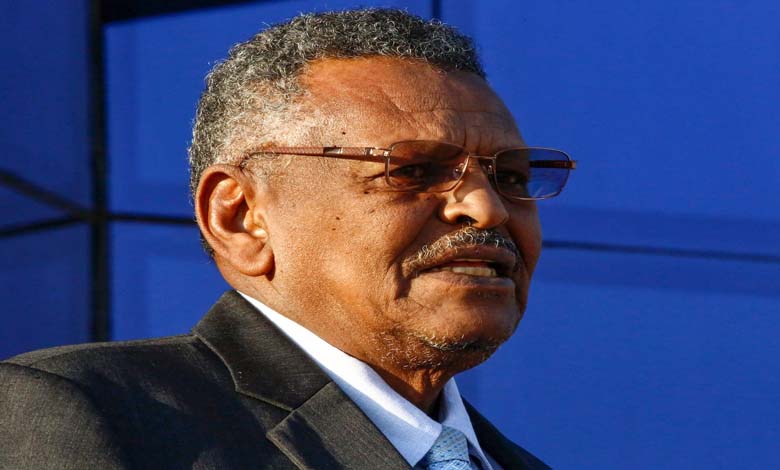Bakri Hassan Saleh, the “cunning” man of coups

Bakri Hassan Saleh, the new First Deputy of the former Sudanese President, is a key figure in the government of President Omar al-Bashir. He executed the military coup with al-Bashir, orchestrated by the Sudanese Islamic movement led by Sheikh Hassan al-Turabi on June 30, 1989, which he later turned against in 1999, ten years after assuming power.
Saleh is considered a figure who avoids the spotlight, starting from his days as a junior officer. However, he actively participated in the planning and preparation with the cadre of the Islamic movement in the Sudanese army for the June 1989 coup, becoming a member of the Revolutionary Command Council.
He played a pivotal role since the success of the coup, being part of the closed circle that formulated and executed major decisions away from media coverage. Even in the darkest political circumstances of al-Bashir‘s rule, Saleh remained within that circle, especially close to al-Bashir in the realm of political action and decision-making.
Saleh continued to hold important portfolios in the ruling regime throughout the 24 years. As a key decision-maker, he played a significant role in the country’s fate, including the 2003 Security Arrangements Agreement with the Sudan People’s Liberation Movement, the first breakthrough in negotiations between southern rebels and the al-Bashir regime.
Remarkably, Bakri Hassan Saleh, the new First Deputy with black-rimmed glasses who always holds his pipe, is the only military figure who signed the famous “Ten Memorandum” presented by prominent “civilian” political leaders from the ruling National Congress Party to remove the leader of the Islamic movement and the Secretary-General of the ruling party, Hassan al-Turabi, in 1999. This marked the first time Saleh stepped into the limelight, and it is believed that he was one of those who orchestrated that memorandum. However, he has not spoken about it so far, as he is described as “reserved in speech but precise in action,” according to observers.
In addition, he is known for his “lightness of being,” and al-Bashir kept him throughout the years of the Salvation regime as the only remaining figure from the coup leadership. He rarely speaks but executes the difficult tasks assigned to him.
On the other hand, his political adversaries view him as a mysterious figure who engaged in “torture” operations during the early days of the coup against opposition leaders. His name is mentioned among those who participated in or supervised torture operations. Observers now question, following the announcement of Bakri Hassan Saleh as the First Deputy, “What role could he have played amid the waves that rocked al-Bashir‘s rule?”












